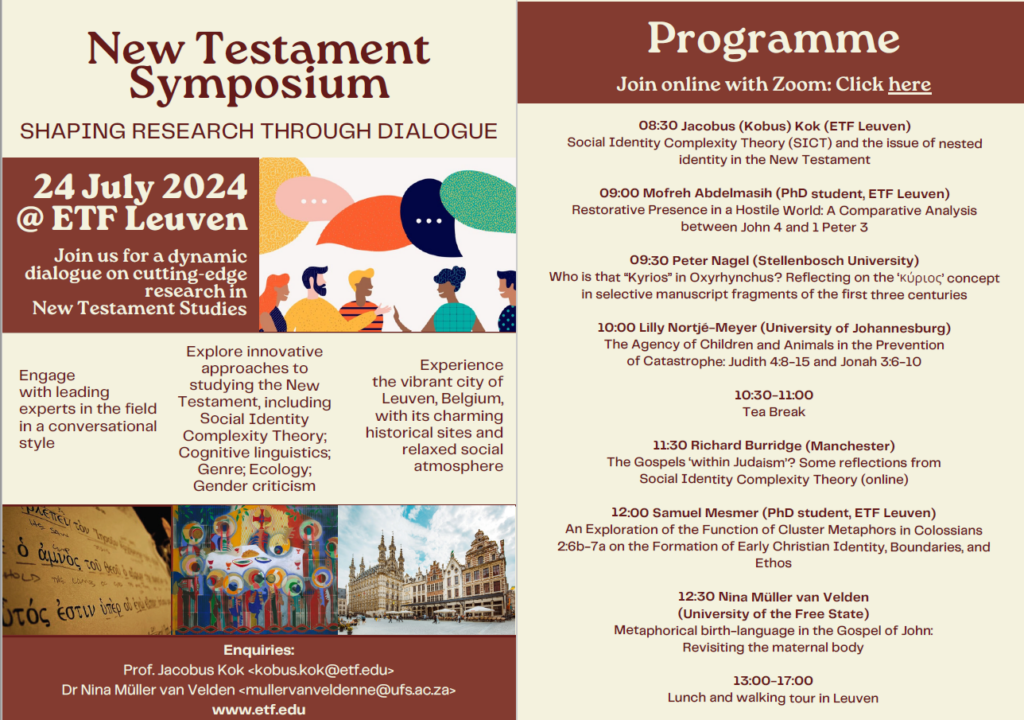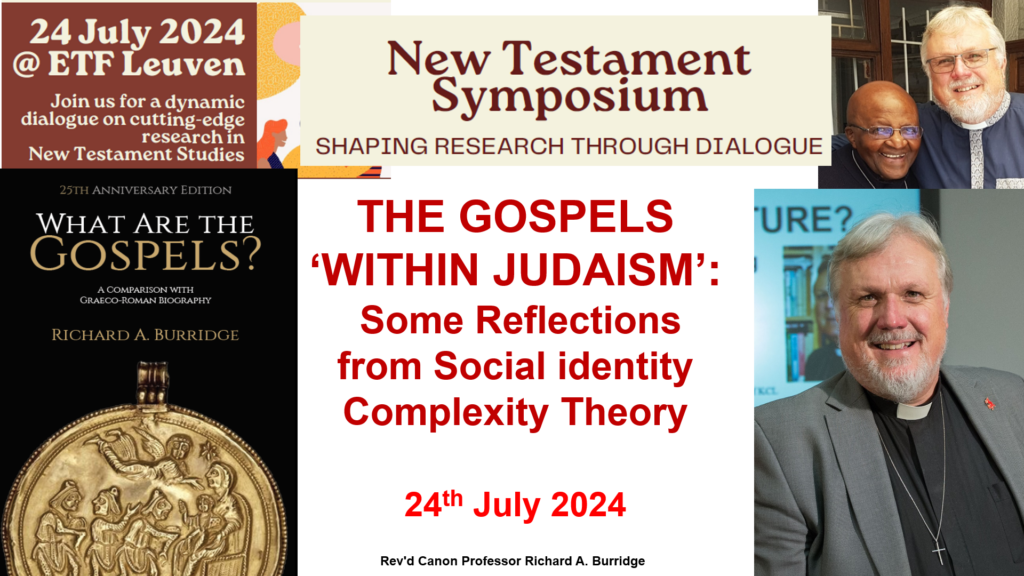THE GOSPELS WITHIN JUDAISM
I was delighted to participate in the New Testament Symposium organised by my old friend and colleague, Professor (Ja)Kobus Kok from ETF at Leuven. Kobus is also a Professor Extraordinarius at his former university, Pretoria, where I am privileged to be a Research Associate in the Department of New Testament and Related Literature as part of Kobus team researching into Social Identity Complexity Theory. It was no surprise therefore that some of the other speakers were colleagues from South Africa, over in Europe for the international meeting of the Society of Biblical Literature, and a number of old friends joined in online from South Africa. But I also appreciated greatly the papers from two of Kobus’ doctoral students – a testament to the research culture at EDF for which he is responsible.

My only regret was that I was unable to get to Leuven myself, having visited Kobus there only a few weeks ago – and so not only did I miss the fellowship and further conversation but also the lunch out together with a tour round the old city. My own paper was the latest version about the place of the Gospels within the first century syncretistic milieu of the Hellenistic-Graeco-Roman-Jewish society in the eastern Mediterranean during the second half of the first century. This paper followed on from two previous earlier versions at the Mabalingwe Conference in South Africa last July, and the 13th Conference of Biblical Studies at the Pontifical Faculty of Theology, Palermo, Sicily, in March 2024, on ‘The texts of the New Testament “within Judaism”: Questions of definition and interpretations’.

Having spent most of the last forty years (!) working on the Graeco-Roman setting of the gospels, especially their literary genre as a type of ancient biography, I have found the recent work of the new school or trend within NT studies of “Within Judaism”. This has grown out of the hugely important work done recently on setting Jesus and Paul within their context in Second Temple Judaism, especially in the decades before the destruction of Jerusalem and the Temple in AD70, following the seminal work of Geza Vermes, WD Davies, EP Sanders, Jimmy Dunn and Tom Wright and many others. On the other hand, I found myself in a great debate with the Within Judaism scholars at the Sicily conference in their attempt to claim that the gospels are ‘Jewish texts’, especially after decades of my work on their Graeco-Roman literary genre! I have always viewed the Roman empire in general as a very mixed and syncretistic society, unlike the attempts by the past British empire or present American hegemony to impose their cultures on the world! I have also been learning much from Kobus Kok’s interest in Social Identity Complexity Theory, particularly with regard to how individuals and groups have a mixture of identities – linguistic, cultural, religious, philosophical, political, racial and ethnic – which can operate all together in a ‘nested’ kind of way. It seems increasingly to me that this is a much better way to think about the identity of the first believers in Jesus as Messiah and Christ, drawn as they were from Jewish and Gentile backgrounds with a wide variety of languages, ideas, cultures and beliefs – just look at the way the author of Mark is clearly still thinking in his mother-tongue of Aramaic with all sorts of Semitic ways of expressing himself, yet completely fluent in speaking and writing in both a Greek genre and Greek language, albeit with his recognisable accent.
So now the task for me this summer is to write up this paper into a final form for publication, hopefully sometime early next year – watch this space!